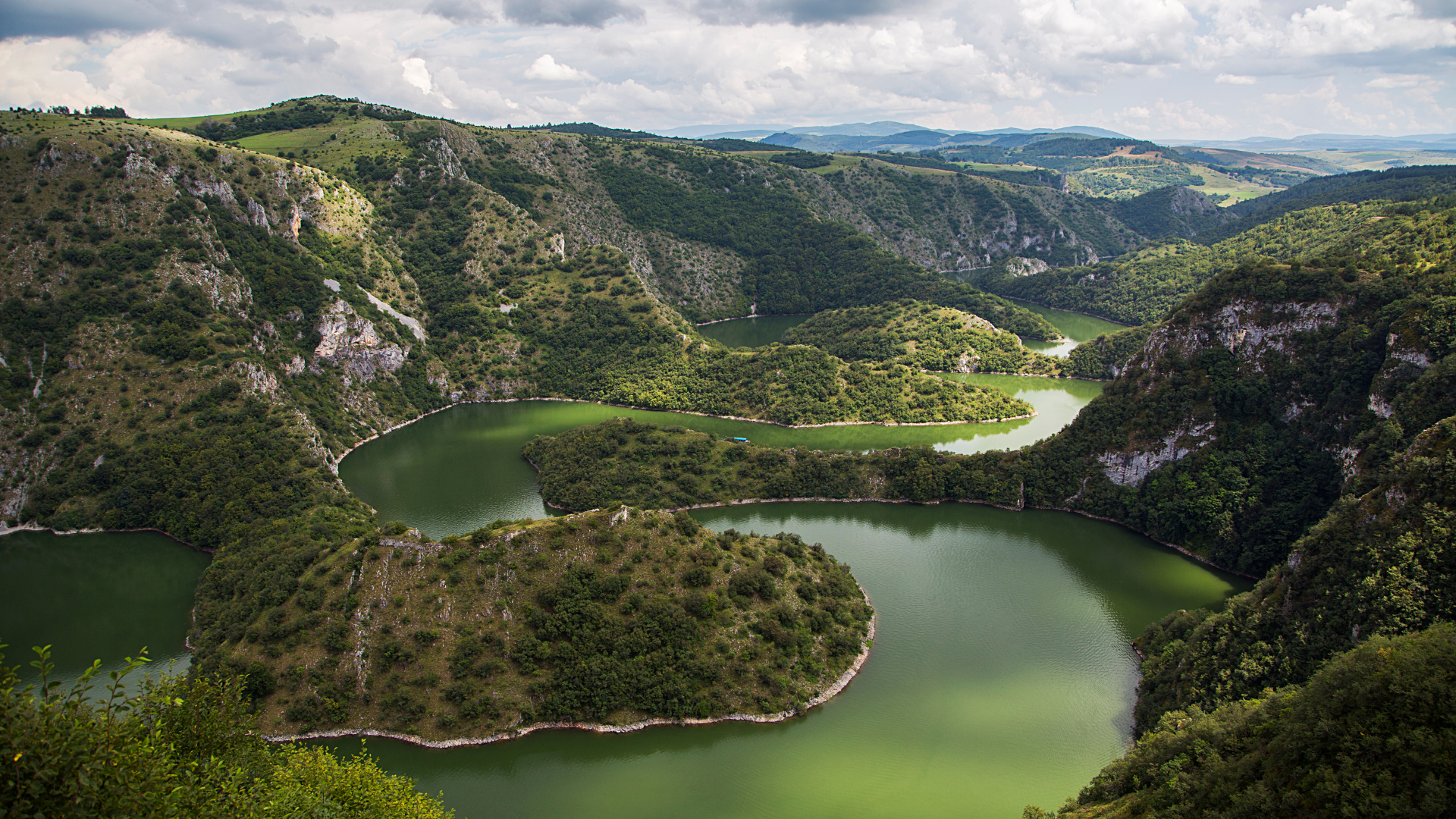Serbia’s Climate Commitments: Bridging the Gap Between Promises and Progress
by Sofia Shabafrouz, GIZ / EUKI
Serbia faces significant challenges when it comes to aligning its climate policies with international commitments and effectively transitioning to a low-carbon economy. The country needs to strengthen its response to climate change by improving the legal framework, institutional capacity and financial support for mitigation and adaptation efforts. In part 5/7 of our series of articles on the six Western Balkans countries, we focus on Serbia’s climate odyssey.

Temperatures in the Western Balkans region are projected to rise at twice the global average due to continued coal burning and a lack of adaptation measures. In recent years, Serbia has experienced frequent heatwaves and droughts, leading to wildfires and major floods. Cities such as Belgrade suffer from high levels of air pollution, which can even cause premature deaths. The impact of climate change is already being felt in the country and is expected to increase dramatically.
State of play with climate governance in Serbia
Mirko Popović is Programme Director at Serbian organisation Renewables and Environmental Regulatory Institute (RERI), one of the project partners of the EUKI project Triggering Emissions Reductions in Power- and Emissions-Intensive Sectors (TERPEIS Balkan). Commenting on the state of play with climate governance, he says: ‘In Serbia, the push for climate action has reached a critical stage. With its commitments to global accords such as the Paris Agreement and the Green Agenda for the Western Balkans (GAWB), Serbia is primed to transition to a greener, more sustainable future. Key to this process is the Law on Climate Change, which sets the foundational framework for Serbia’s climate policy.’ Nonetheless, Popović points out that the effectiveness of the law hinges on crucial enhancements. ‘Recommendations include setting clear goals for carbon neutrality, aligning with international agreements, prioritising public welfare and environmental protection, and embracing technological innovation for emissions monitoring,’ he explains. According to the experienced environmental activist, Serbia needs to invest in knowledge-building, secure financial and technical support, and foster inclusive decision-making processes.
A long list of challenges and recommendations
Because of its pledges and ambitious targets, Serbia has faced challenges in meeting deadlines and implementing the necessary measures to properly fulfil its commitments – including meeting the criteria as a candidate country for European Union (EU) accession. Chapter 27 of the European Commission’s Serbia Report 2023 and the Shadow Report ‘A Green Agenda with No Agenda’ by Coalition 27 – a coalition of eight civil society organisations – provide a good overview and critical analysis of Serbia’s progress on climate policy. In the Shadow Report, the authors critically assess Serbia’s progress on environmental and climate reforms between April 2022 and April 2023. They highlight the following challenges and recommendations:
The Coalition 27 team is preparing a new report due to be published this autumn that will cover the period April 2023 to April 2024. The team at Belgrade Open School, a Coalition member, sent EUKI a sneak preview of their critical analysis of the situation: “Political priorities divert attention and resources from climate governance, leading to implementation delays. For example, EXPO 2027’s projected cost of 0.4% of GDP surpasses investments in environmental protection and education, hindering progress on environmental goals. Furthermore, the absence of a clear decarbonisation plan in strategic documents impedes efforts to achieve net-zero emissions by 2050. It is crucial to build institutional capacity and enhance stakeholder coordination to effectively deliver climate policies and initiatives at both national and local level.”
EUKI projects in Serbia
While Serbia grapples with the complex web of climate governance challenges outlined above, several initiatives have emerged to tackle these issues head on. These include projects funded by the European Climate Initiative (EUKI) that aim to catalyse meaningful change and foster cross-sectoral collaboration. There are currently four EUKI projects ongoing in Serbia.
The aforementioned Triggering Emissions Reductions in Power- and Emissions-Intensive Sectors project (TERPEIS Balkan) aims to enhance the policy-making processes in three Western Balkans countries, including Serbia, and to support their alignment with the EU Emissions Trading System and the Carbon Border Adjustment Mechanism (CBAM).
Another EUKI project, Green Kick – Decarbonisation at Local Level, assists local governments and civil society in Serbia and two other countries in the region to jointly develop municipal Sustainable Energy and Climate Action Plans (SECAPs) and raise awareness of the need for decarbonisation in cities. The German-Eastern European Journalist Bursaries on Climate and Energy Issues is a EUKI project granting fellowships to journalists from Germany and Eastern European nations to enable them to create networks and improve media coverage of climate and energy issues in countries such as Serbia. Finally, the EDU-CLIC project is working to set up an educational infrastructure for waste management staff and landfill operators to reduce greenhouse gas emissions in Serbia’s municipal waste sector.
The recently finalised EUKI project Climate Bridges has established a network that seeks to improve implementation of climate mitigation solutions in South-Eastern Europe by strengthening collaboration and dialogue between members and promoting cooperation between civil society organisations and government agencies. You can join the network here.

